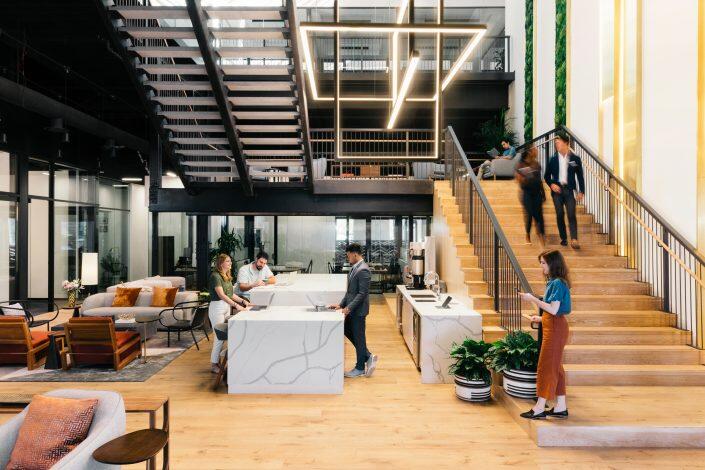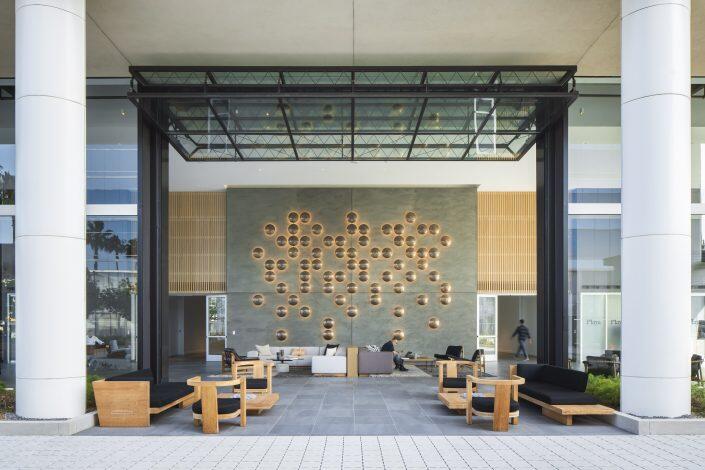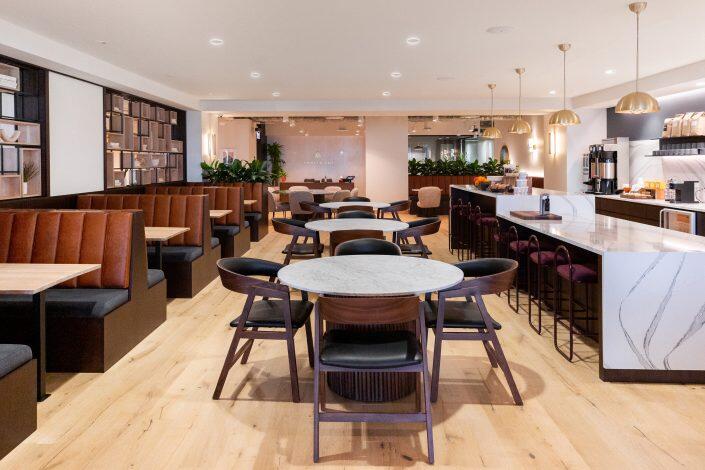The post-pandemic world has offered an opportunity to re-evaluate how the workplace can enhance productivity and employee engagement through the growth of flexible office spaces as an asset class. However, these transformed office spaces are anything but a post-pandemic trend—JLL’s latest research predicts this asset class to comprise at least 30% of all commercial real estate space by 2023. The growth spurt of this asset class has resulted in many operators relying on an asset-heavy master lease model to supply the bulk of their spaces, but one provider chose a lower-risk and higher-revenue alternative through partnership.
Industrious’s favor of partnerships with landlords since 2018 has worked in favor of both parties despite the pandemic stacking significant odds against the company. The partnership agreements structure equipped the Industrious team to complete dozens of transactions after the pandemic began in 2020 and finalized the largest number of signings in the history of Industrious at the end of 2021, with a path for continuous growth into 2022. Aside from the transaction metrics, partnerships have also proven to leave space for innovative collaboration that benefits both the landlord and the end customer.

(Industrious FashionSquare | Scottsdale, AZ)
Transforming properties through collaboration
Maximizing the potential of a space can lead to above-market returns for the portfolio as a whole. For instance, one of Industrious’ partnerships with Macerich transformed a former Barney’s anchor store into a thriving flex office space in the Scottsdale Fashion Square mall. Not only does it offer a convenient workplace location with numerous amenities, but it also successfully drives as many as 500-1000 additional consumers to the property.

(Industrious Playa District | Los Angeles, CA)
In Los Angeles, Industrious’ Playa District location also saw tremendous transformation through partnership. EQ Office’s partnership on the project catapulted the transformation of the Howard Hughes campus into a rebranded modern district for work and commerce. With incorporated flex-office and amenity space, a new hub was born for companies in tech to professional services, and under an Industrious-managed tenant experience, the coworking space outperformed underwriting projections within the first three months. After seeing the benefits of this structure, EQ Office followed up with two additional projects including a location at the iconic Willis Tower in Chicago.

Industrious Willis Tower | Chicago, IL
Servicing the workplace of the future
“Companies are simply not working the same way they were before,” stated Justin Stewart, President, and Co-founder of Industrious. “We’re now seeing a robust demand for occupiers to work out of coworking spaces regularly in dynamic urban centers, urban submarkets, and suburban markets. Larger, enterprise-sized companies are now considering the benefits of a flex-office structure and are allowing their employees the option to work from various locations. Landlords see partnerships with Industrious as a way to connect their great real estate assets to new occupiers as well as to better serve the needs of their existing tenant base.”
The past year has shown the industry that empty retail, defunct office space, and even abandoned warehouses can all be reimagined and transformed into profitable assets through a partnership with an experienced flex office provider. In the case of Industrious, their growth would not have been possible without the strategic partnership with landlords seeking to enhance and equip their existing portfolios for the future of work. Across high-growth unicorns to established firms, the sentiment is clear—both tenants and landlords have the unique opportunity to plan for expansion without an increased asset liability through partnership.

